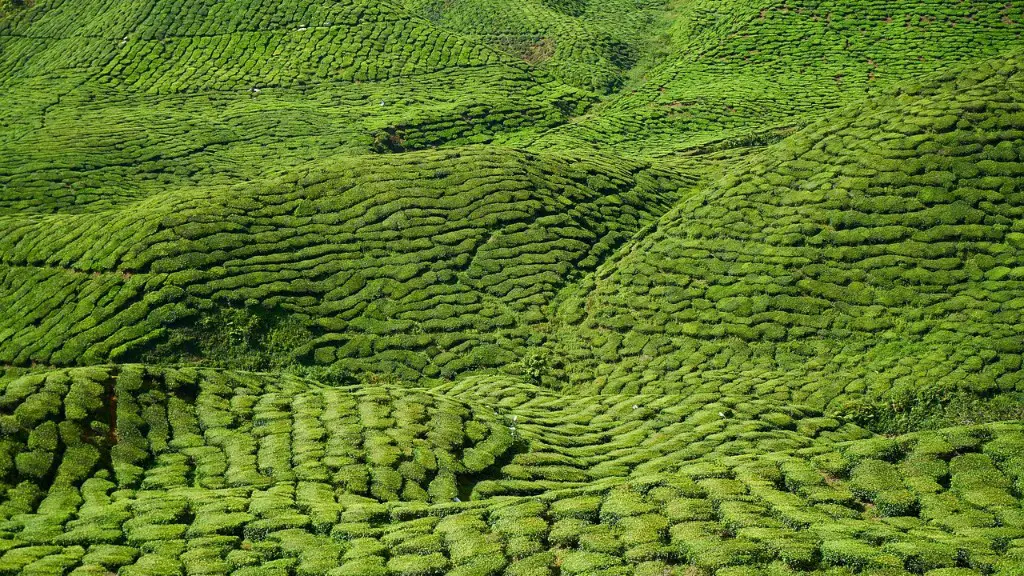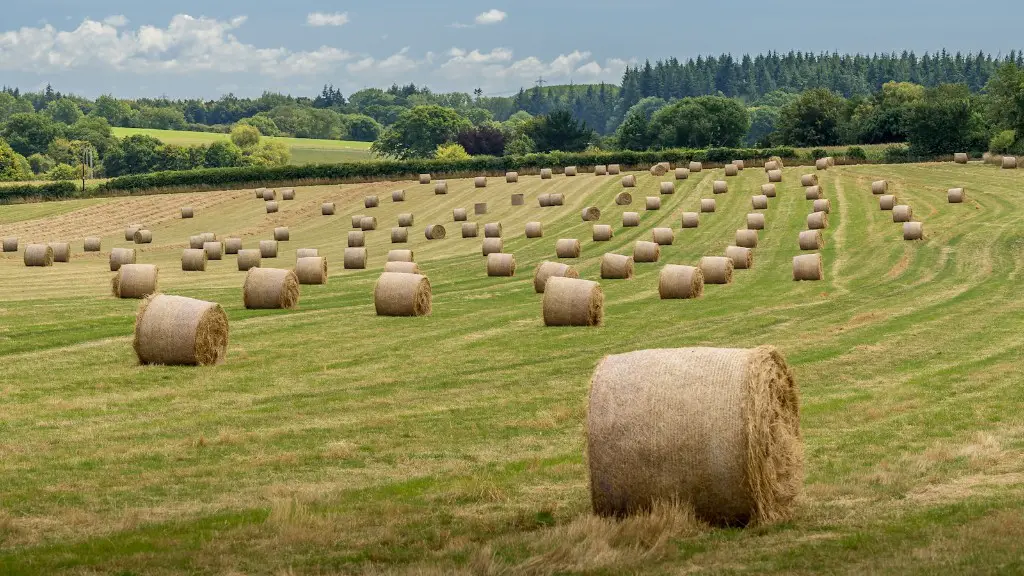agriculture is the backbone of any civilization and has been since the dawn of time. It is the process of growing and producing food, feed, fiber, and fuel. Chemistry is important in agriculture because it helps in creating new and improved ways to grow crops and raise livestock. It also helps in developing new products that can make farming more efficient and effective.
There are many reasons why chemistry is important in agriculture. One reason is that chemistry can help us understand how different elements in the soil interact with plants. This knowledge can help farmers manage the soil better and grow healthier plants. Another reason is that chemistry can help us develop new and better ways to fertilize and pest-proof crops. For example, scientists are using chemistry to develop more effective and environmentally-friendly pesticides. In addition, chemistry can help us develop new food processing and preservation techniques.
How is chemistry important in agriculture?
Chemistry has helped to increase crop production through the use of fertilizers. Fertilizers are chemical substances that are made from nitrogen, phosphorous, and potassium. They make the soil fertile and help to increase crop production. Chemistry is also used to make pesticides and insecticides, which help to protect crops from pests and diseases.
Agricultural chemistry is a branch of chemistry that deals with the production of pesticides and insecticides. These chemicals are used on a large scale to prevent external organisms from harming the crops. This includes rodenticides, pediculicides, biocides, fungicides, herbicides, etc.
How do farmers use chemistry
Herbicides are used to kill weeds, insecticides are used to kill bugs, and fungicides are used to get rid of disease. Soil fumigants, desiccants, harvest aids, and plant growth regulators are all used to help plants grow.
Agricultural chemistry often aims at preserving or increasing the fertility of soil, maintaining or improving the agricultural yield, and improving the quality of the crop. When agriculture is considered with ecology, the sustainablility of an operation is considered.
Is agriculture a branch of chemistry?
Agrochemistry is a branch of chemistry that deals with the application of chemistry to agricultural production, food processing, and environmental remediation as a result of agriculture. It may also be called agricultural chemistry. Agrochemistry covers a wide range of topics, from the use of fertilizers and pesticides to the study of soil science and the development of new crop varieties.
Agrochemicals are an important part of agriculture and are used to control weeds, diseases, and pests in crops. They work by repelling, preventing, or destroying weeds and/or pests and diseases. While they are essential for keeping crops healthy, agrochemicals can also be harmful if not used properly. It is important to follow all instructions when using agrochemicals, and to wear protective clothing and equipment to avoid exposure.
How chemistry has changed our life in agriculture and healthcare?
Chemistry has been effective in the development of pesticides that have reduced pesticide crop damage. Pesticides include fungicides, pediculicides, herbicides, biocides, and insecticides, depending on the pest. The application of these pesticides reduces the pests’ impact on crops by 10%.
Analytical chemistry is a branch of chemistry that deals with the identification and separation of the components present in a given sample. It has been extensively used in agriculture for decades, both in terms of research and production processes. Over the years, it has also played a significant role in shaping practical agricultural procedures.
What are three contributions of chemistry to the field of agriculture
Crops need four things for good growth: sunlight, water, nutrients from the soil, and protection from predators such as insects. Chemistry has made major contributions within water usage, nutrient availability, and plant protection. For example, in terms of water usage, chemistry has helped to develop irrigation systems that help deliver water to crops more efficiently. In terms of nutrients, chemistry has helped to develop fertilizers that can provide crops with the nutrients they need to grow. And in terms of plant protection, chemistry has helped to develop pesticides that can help protect crops from predators.
Organic matter is important for soil health because it improve soil structure, which results in increased water infiltration following rains and increased water-holding capacity of the soil. Additionally, organic matter enhances root growth into more permeable soil, resulting in better plant health and allowing more movement of mobile nutrients (such as nitrates) to the roots.
What are five importance of chemistry?
Chemistry is an essential science that helps us to meet our basic needs of food, clothing, shelter, health, energy, and clean air, water, and soil. Chemical technologies can help us to improve our quality of life in many ways, by providing new solutions to problems in health, materials, and energy usage.
Soil organic matter (SOM) is a key component of healthy soils and is responsible for many important functions, including acting as a source of nutrients and water, regulating soil temperature and pH, and improving soil structure. The majority of SOM is derived from plant tissue, which contains 60-90 percent moisture. The remaining dry matter consists of carbon (C), oxygen, hydrogen (H), and small amounts of sulphur (S), nitrogen (N), phosphorus (P), potassium (K), calcium (Ca), and magnesium (Mg).
Why are the 5 reasons that organic matter is important in soil
Organic matter is essential for healthy soil. It helps improve soil structure, water-holding capacity, nutrient mineralization, biological activity, and water and air infiltration rates. Increasing levels of organic matter can have a positive impact on all of these factors, resulting in healthier, more productive soils.
Organic agriculture is environmentally friendly and sustainable. It reduces the use of non-renewable energy by decreasing the need for agrochemicals. Organic agriculture also helps to mitigate the greenhouse effect and global warming by sequestering carbon in the soil.
How can chemistry help solve environmental problems?
Chemistry is vital to understanding, monitoring, protecting and improving the environment around us. Chemists are constantly developing new tools and techniques to help us see and measure air and water pollution, and to build the evidence that shows how our climate has changed over time. By better understanding the chemistry of our environment, we can take steps to mitigate the negative impacts of human activity and make our planet a cleaner, healthier place to live.
Chemistry is very important in our industry as it helps produce more materials such as paints, plastics, iron or steel, cement, kerosene, and also motor oil. Chemistry also helps farmers to enrich the soil with chemicals to grow fresh vegetables.
What are the benefits of chemistry
Chemistry provides opportunities for employment in various industries, including pharmaceuticals, manufacturing, and environmental protection. It also helps in the development of new products and technologies. In addition, chemistry contributes to the economy by providing mechanisms for the production of materials and products, and by making processes more efficient.
The physical and chemical interactions that occur during weathering and soil formation play an important role in soil development. These interactions help to break down rocks and organic matter, which then helps to create new soil. The physical forces of freezing and thawing, wetting and drying, and the biological activity of decomposing organic matter all contribute to soil development.
Final Words
Chemistry is important in agriculture for a number of reasons. It helps farmers to understand the science behind the crop production, soil fertility, and the pest control. It also assists in the development of new and improved farming techniques. Moreover, chemistry is essential for the manufacturing of fertilizers and pesticides, which are vital for the successful cultivation of crops.
Chemistry is an important science that helps us to understand the world around us. It has many applications in agriculture, such as helping farmers to understand the soil and the plants, and to develop new and more efficient ways of producing food.





